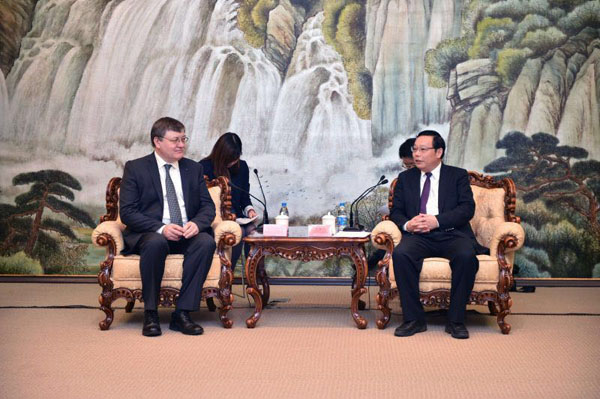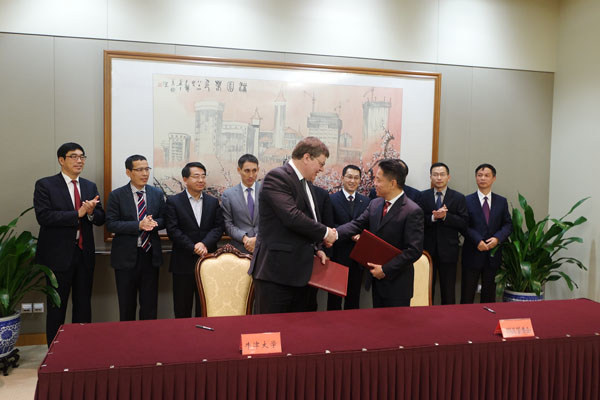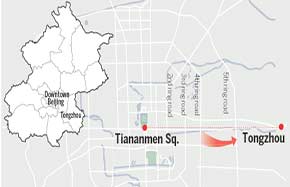Jiangsu Province's Suzhou Industrial Park signs Oxford University deal
 |
|
Professor Donal Bradley, head of the Mathematical, Physical and Life Sciences Division of Oxford University, talks with Xu Huimin, Suzhou Municipal Committee and secretary of CPC of Suzhou Industrial Park Working Committee on December 7. [Photo/provided to chinadaily.com.cn] |
Jiansu-based Suzhou Industrial Park and the UK's Oxford University signed a deal establishing a joint research centre, officials said today.
The Oxford Suzhou Centre for Advanced Research (OSCAR) will be a multi-disciplined research, innovation and technology centre; it will initially focus on biomedical engineering, biomedicine, advanced function material, energy, environmental technology, financial mathematics, computer science and the health industry.
"Based on the basic research which the University of Oxford owns, we will focus on the applicable studies in OSCAR," said Cui Zhanfeng, a professor at Oxford's Department of Engineering Science.
The agreement, which took five years to negotiate, was signed by Suzhou Industrial Park's chairman, Yang Zhiping, and Professor Donal Bradley, head of the Mathematical, Physical and Life Sciences Division of Oxford University.
 |
|
Yang Zhiping, Suzhou Industrial Park's chairman, and Professor Donal Bradley, head of the Mathematical, Physical and Life Sciences Division of Oxford University sign an agreement, Dec 7, 2016. [Photo/provided to chinadaily.com.cn] |
"SIP has strong infrastructure and strong innovation facilities, such as the Biobay in Suzhou. In addition, Jiangsu province has a strong commitment and engagement to education and it is also the province that is looking to develop economy in a sustainable way and to improve the quality of life," said Bradley.
Yang Zhiping commented: "The corporation with high-end institutions and universities will attract more elites and promote the development and transition of SIP's economy."



















